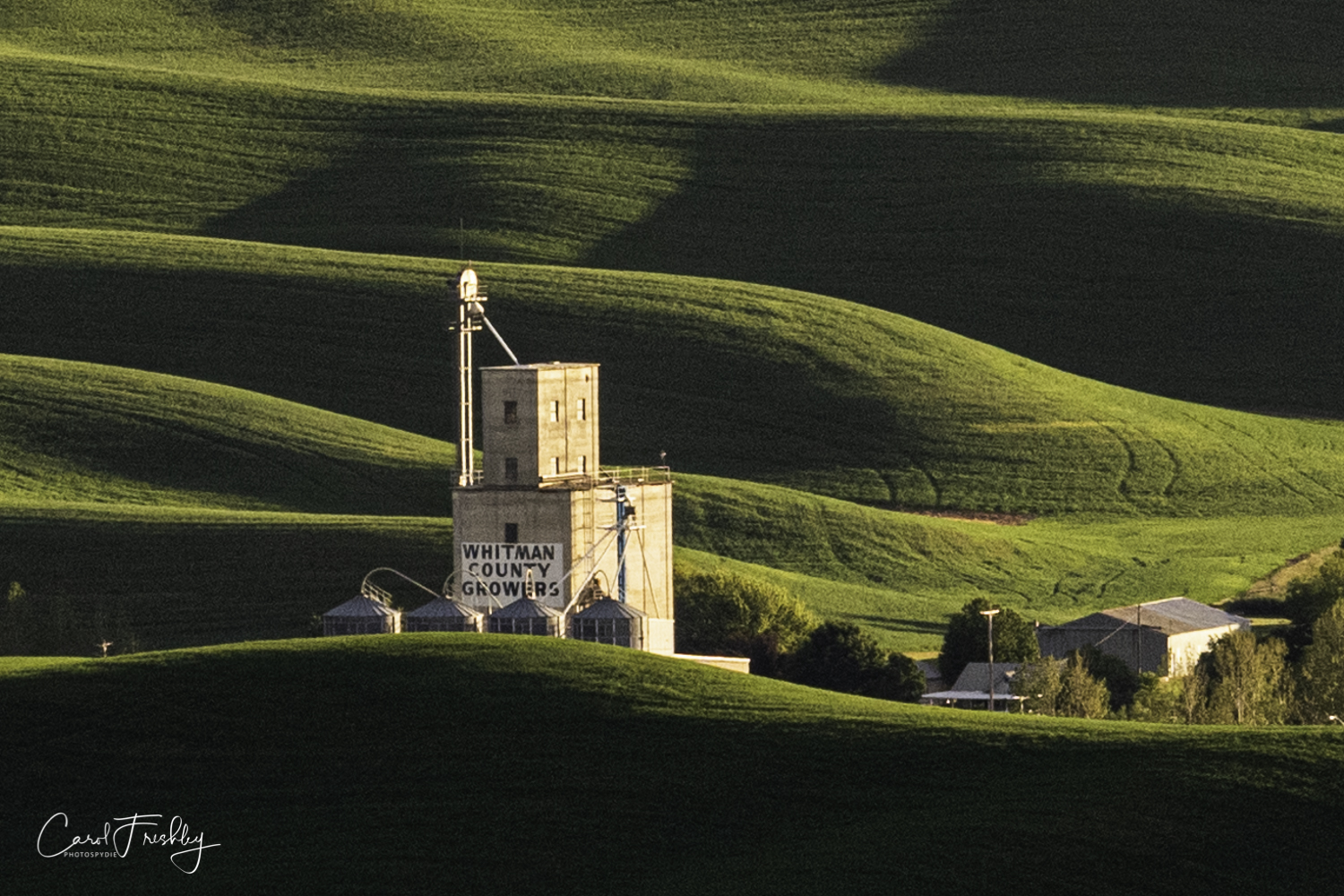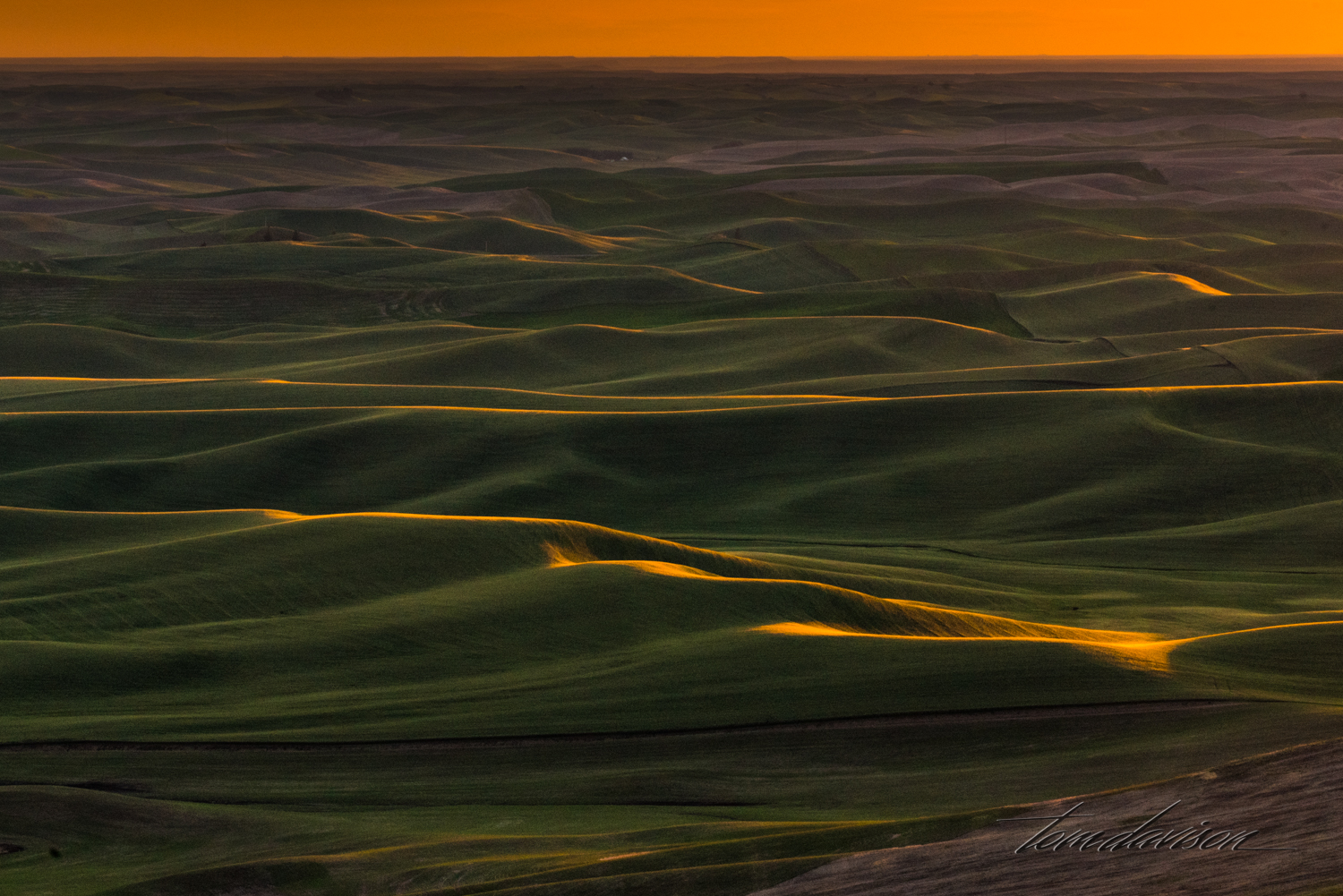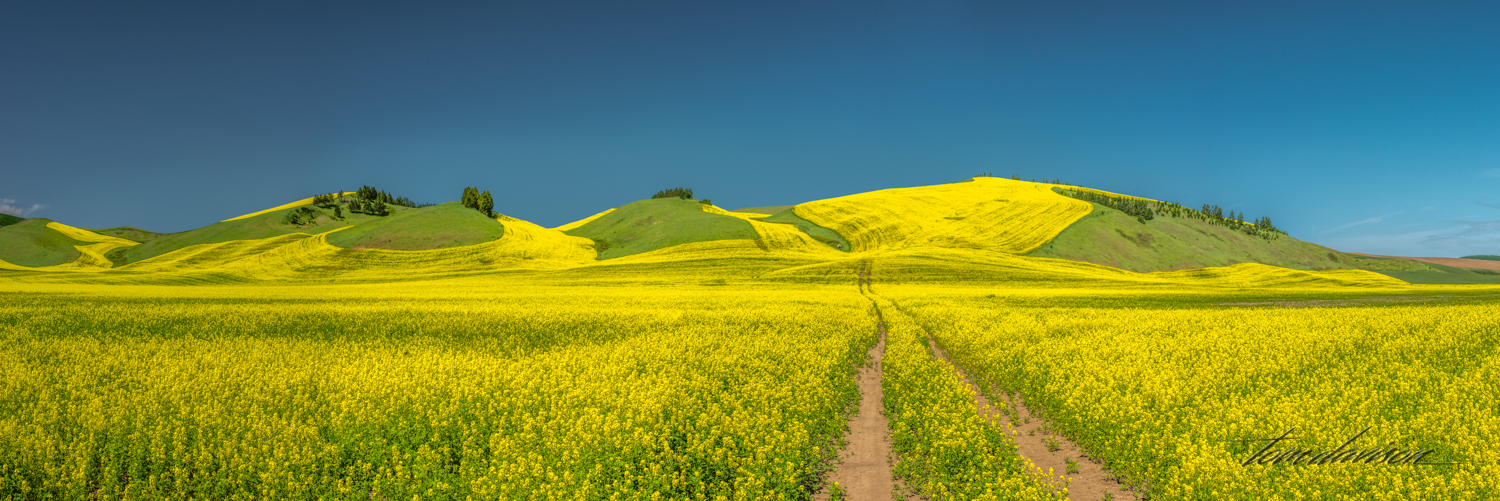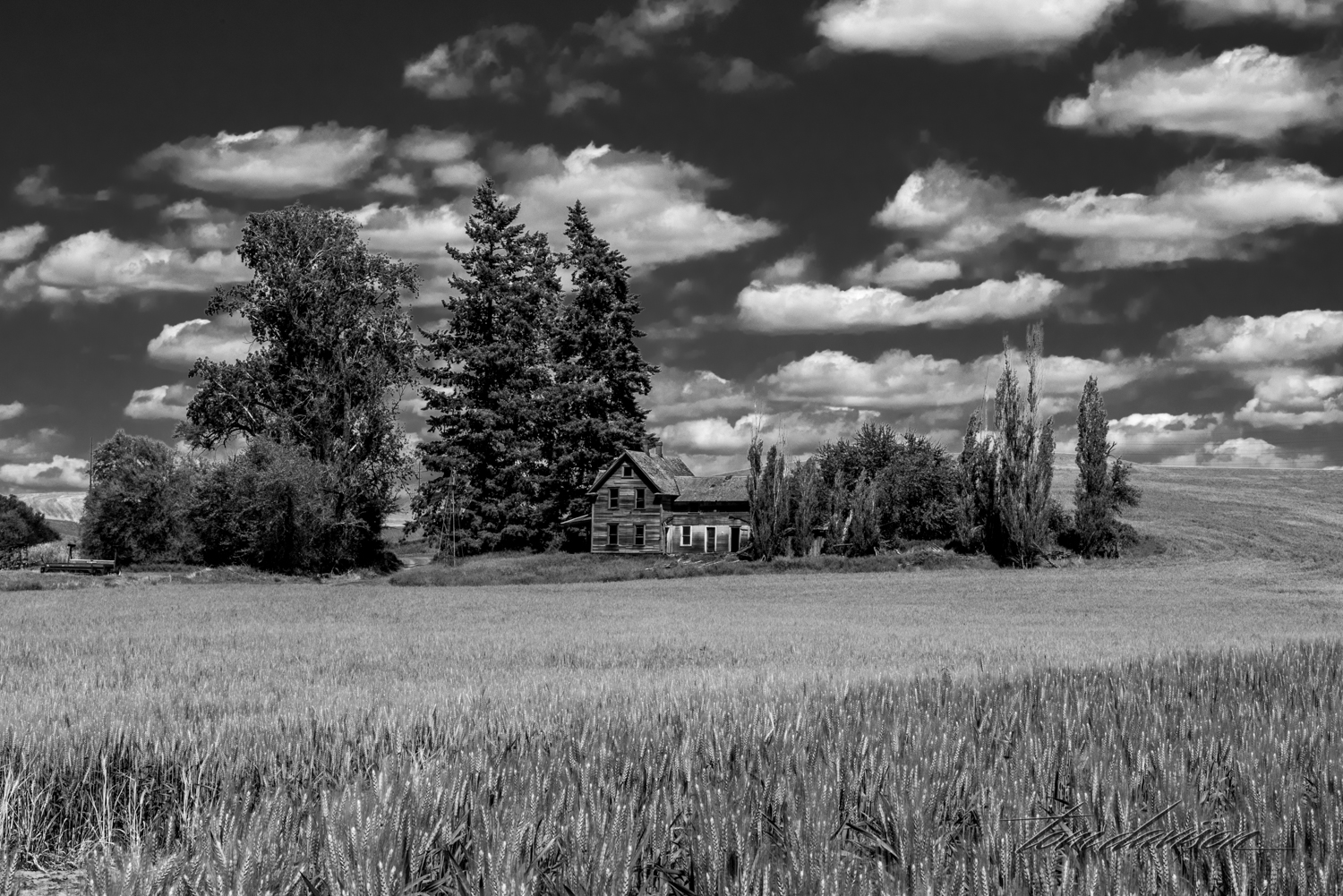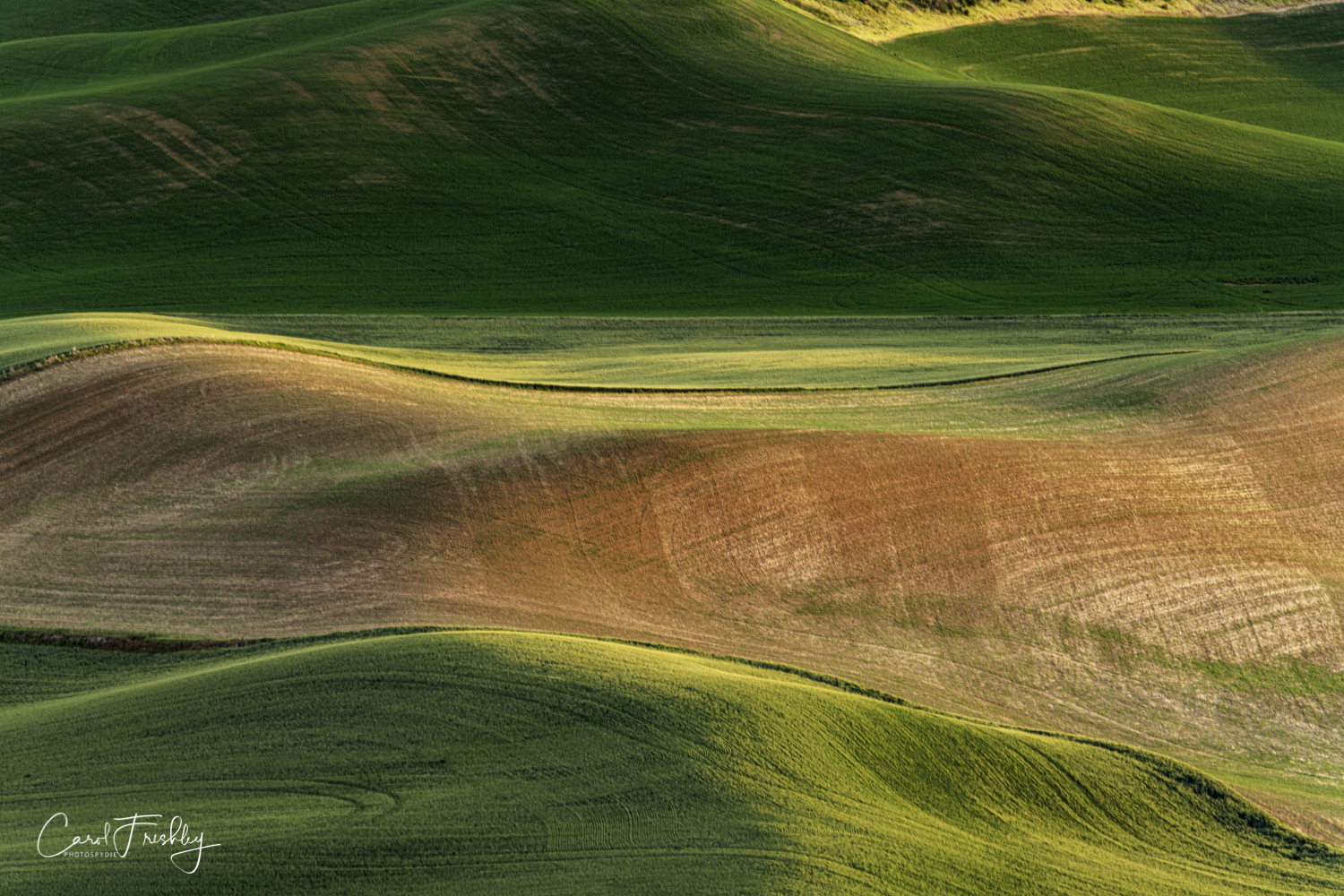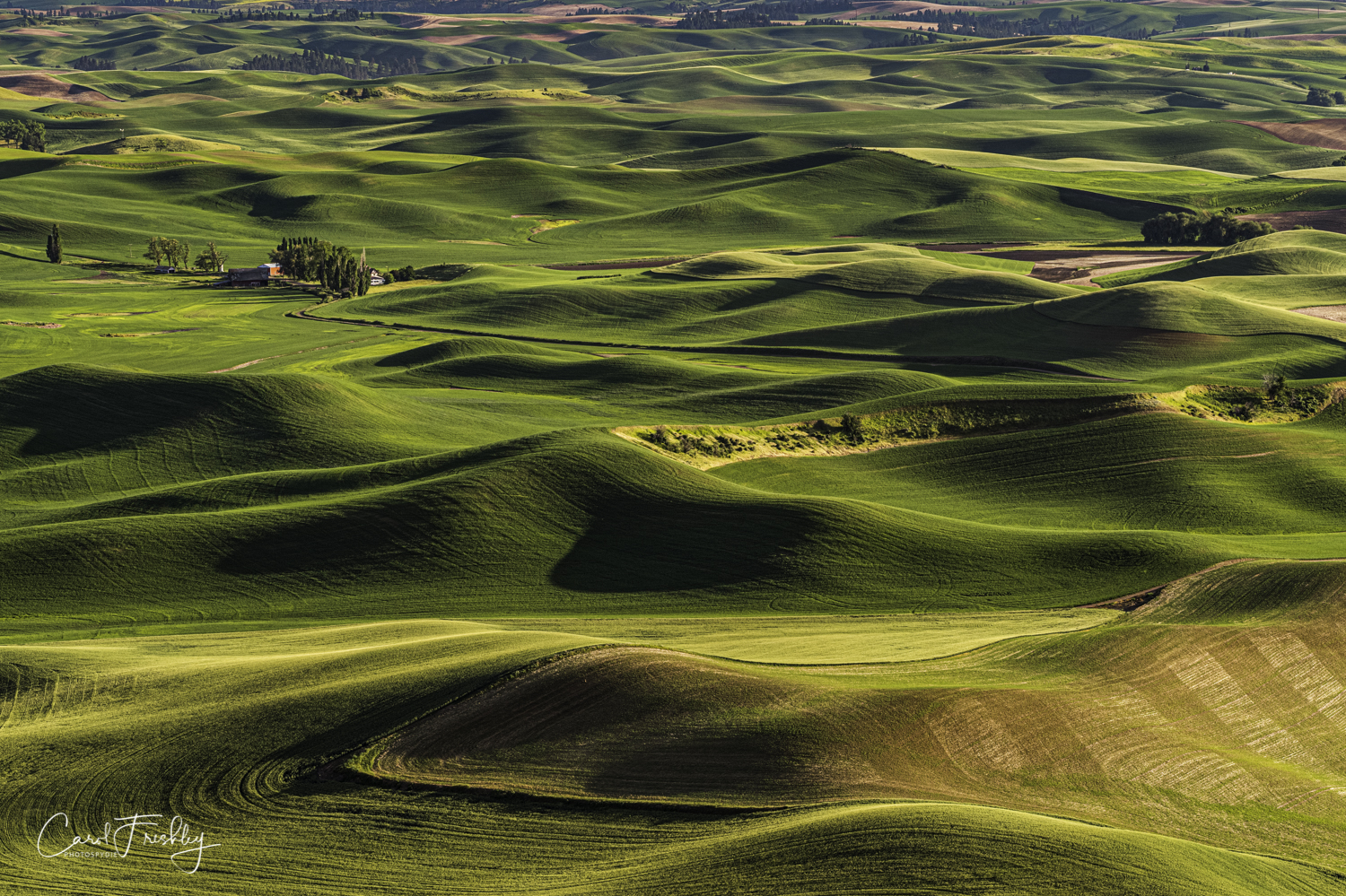The Palouse is located in southeastern Washington. It is the designation given to an area with rolling hills that have been formed over thousand of years from wind blown dust and silt. The best view of these rolling hills can be seen from Steptoe Butte. We love The Palouse. So do so many other photographers! The place to set up your tripod to get the ‘classic’ Palouse landscape is up on Steptoe Butte. This butte is a big thumb right in the middle of it all. It is a Washington State Park (annual fee for a statewide permit is $30). The road winds up and around and around and around. There are several prime spots and you can count on having the company of many other photographers on any evening to photograph the deep shadows on hills of wheat and canola. From Steptoe Butte the rolling hills look like giant sand dunes, no surprise since they were formed in much the same way.
You might have noticed that some of these hills are pretty steep. You might also have thought that the usual straight line farming would no work well (think errosion of soil). So, how do farmers plow and harvest these hills? Well, I checked into it and found out that at one time that was a serious problem. The hills are, in fact, steep enough to cause tractors and combines to tip over. An innovative solution was found by Raymond Hanson (age 19) in 1941. He invented the control mechanism that then lead to the development of a self-leveling combine!! This system allows the chassis and cutting part of the machine to follow the slope of the hill while the body and cab remain vertical. This is the number one wheat producing area of the country.
When we first arrived in Palouse the canola plants had not started to produce their flower which gives the landscape that gorgeous yellow that we love. By the time we left it was just beginning to show up in some fields. There was just a hint of it in some of the first photographs above.
Someone has quite a collection going!!





